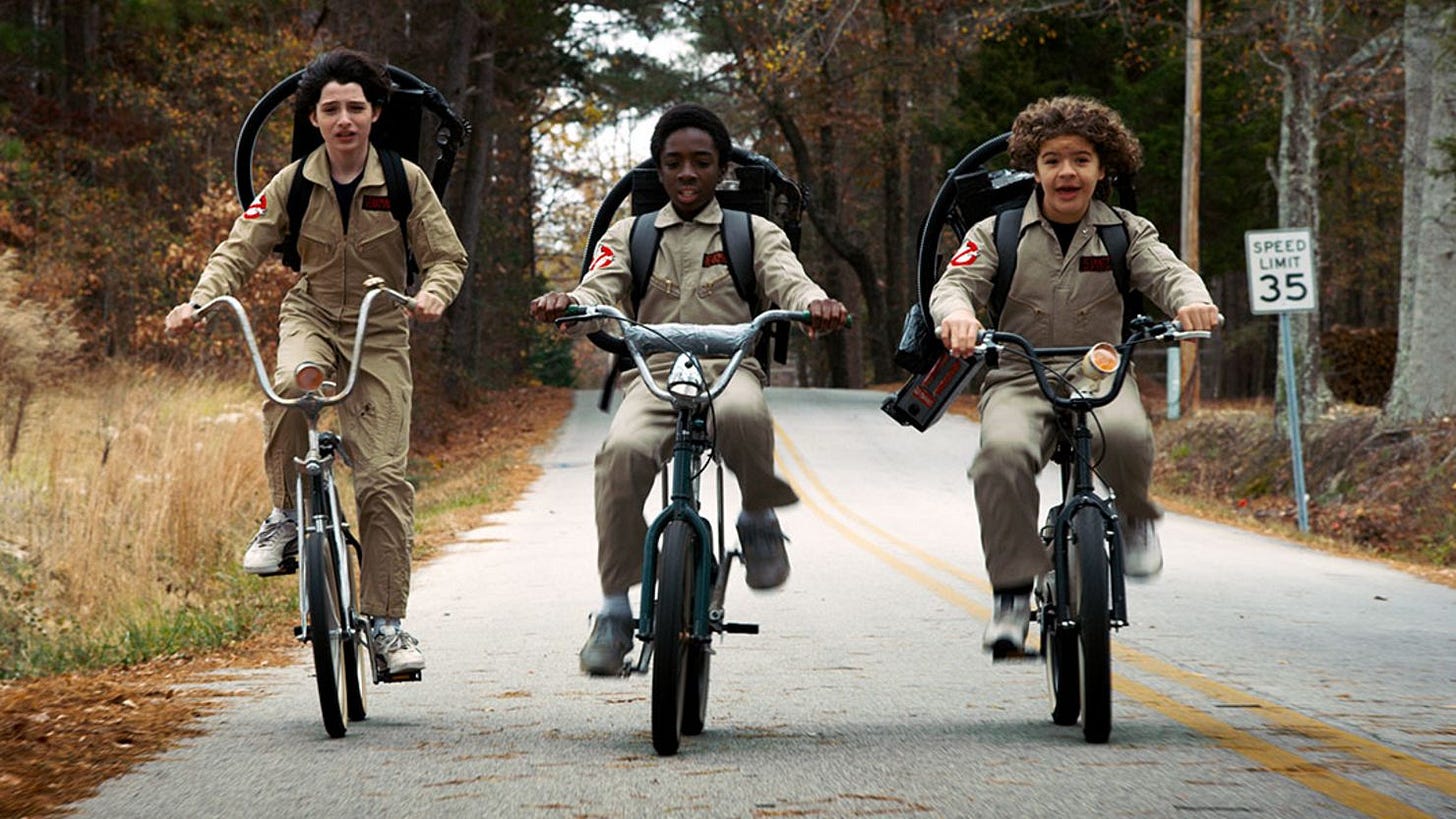Editorial: In praise of a phone-free Halloween
Excessive underage screen time ruins childhoods, and should be a taboo akin to alcohol or drug usage.
The official trailer for the fifth and final season of Netflix’s Stranger Things has arrived on the eve of Halloween, to mixed emotions and some sadness for its audience.
Stranger Things has served as an increasingly rare modern cultural touchstone for a few reasons, one of which is the escapism into the 1980s. It is an era most can remember or conceptualise, but one that feels more foreign by the day.
Most of the characters are teenagers, and watching them experience a genuine childhood of roaming outdoors and playing board games instead of swapping TikToks and mindlessly doom-scrolling reflects poorly upon ourselves.
The show’s infectious nostalgia is drawn from more than just the fashion or music, but from a youthful freedom, silently surrendered, that existed when childhood was not yet outsourced to a screen.
One of the most special days of the year for most children is Halloween.
They can push the boundaries of exploration seeking candy with their friends. feeling pride of ownership and expression in the eclectic outfits they assembled themselves, and into which they will never fit again.
And yet, more than half of Canadians feel that there are fewer costumed revellers on the street than there used to be. In fact, there are fewer kids joining the spooky festivities every year, because people have less and less children every decade.
If society ever changes course and truly normalises creating families again, those born deserve to be brought up normally with a real childhood, rather than a hybrid simulated existence.
The smartphone, and screens more generally, are now arguably the most frightening monsters of childhood. They represent a black hole, a time and attention void, eating up young lives day by day. Longer daily screen time causes poorer sleep, mental health disorders, poorer moods, shorter attention spans, and less outdoor play, all of which are the habits that Halloween corrects for on one annualized, glorious evening.
One of the many great cultural crimes of the twenty-first century has been the irresponsible ease with which children can access mind-numbing technology.
It is common to see four-year-olds mindlessly scrolling an iPhone in a trance brought about by blue light, dopamine hits, and a switched-off frontal lobe, while their parents may well be doing the same. Heavy parental phone use tracks with more anger and sadness in kids, a trade no sane society should make.
A mind is a terrible thing to waste, but that is something we have the power to help prevent. Every generation before us handed down stories, games, and rituals, while we seem increasingly content with bequeathing addictions.
As with the tragic decline in fertility, there are no purely political solutions for the flattening of life through technology, and that turning of three dimensions into two. However, we have an eternal duty to try and push towards a better world to welcome new human life. We can begin simply by looking up and giving our attention back to one another.
We should strive for packed sidewalks with families engaged in healthy competition and an arms race of playfulness in our otherwise cynical, self-serious, and easily offended modern world. To better create the conditions of a return to the pastoral agreeability of our recent past, a good start would be turning the use of iPhones for children into a taboo as egregious as plying them with alcohol or drugs.
Those in childhood, preadolescence, even teenagers, have no business wasting their minds and time with social media.
It is illegal to supply alcohol and recreational narcotics to children, and phone usage deserves similar scrutiny. The state should not peer into the homes and daily lives of families, but making underage phone usage a strong cultural taboo is a worthy goal.
For those born in the late-eighties and into the mid-nineties, they may well have caught the tail end of a normal upbringing, when after-school hours were spent running around or fighting with plastic swords in a friend’s backyard until dark. Plenty of Gen Z’s and Millennials tore through entire books in a day or two as tweens, but now struggle as adults to finish twenty pages before bed, under the shifting dynamics of neuroplasticity and an attention economy.
Nostalgia can be more dangerous than pleasant, but it is hard to resist. It is what makes a television show like Netflix’s Stranger Things such a success, that longing for a time that was perhaps no less simple, but less controlled by technology. That computer, that arcade, it never made its way into our pockets the way it has now.
The ache for the past is not really about the eighties, but a longing for a fuller, more attentive life.
Halloween is a day for creativity, for escapism, comradery, and the transformation of a calendar of the ordinary into limitless possibilities restrained only by one’s imagination. That magic should endure forever, and should not be an occasion that we let fall into decline.
Today’s date reminds us that childhood is fleeting, but we can still choose to make the real world more enchanting and magical than the digital.







So right!